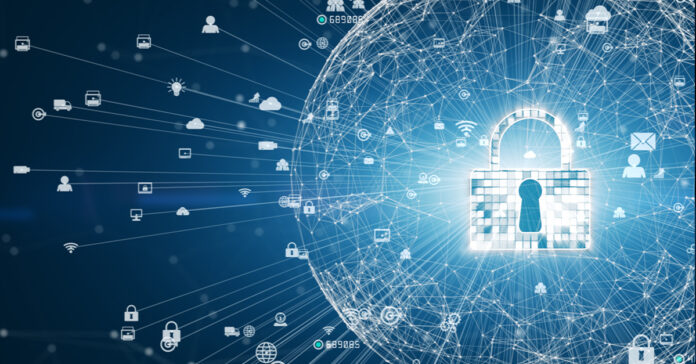In the ever-evolving digital age, cybersecurity is no longer just about advanced tools, firewalls, or encryption. While technical expertise remains essential, employers are increasingly prioritising soft skills, the human capabilities that enable professionals to collaborate, adapt, and solve complex problems. This blog explores why soft skills matter in cybersecurity, how they complement technical abilities, and why they are becoming a defining factor for success in the field.
Introduction
For years, cybersecurity has been perceived as a domain dominated by technical prowess, programming, network defence, cryptography, and penetration testing. Yet, recent industry insights reveal a growing shift. Organisations now recognise that the most successful professionals are not just brilliant coders or ethical hackers, but also effective communicators, problem-solvers, and leaders.
As cyber threats become more sophisticated, teamwork, adaptability, and critical thinking are equally vital for protecting digital infrastructure. This is why many professionals pursue a cyber security course, not only to acquire technical expertise but also to enhance the human-centred skills that employers seek. The fusion of technical skills and soft skills is what truly equips individuals to thrive in cybersecurity.
Why Soft Skills Are Crucial in Cybersecurity
1. Communication: Bridging the Gap Between Technical and Non-Technical
Cybersecurity professionals often need to explain complex threats to stakeholders who may not have a technical background. Whether it’s presenting findings to executives or training employees on phishing awareness, clear communication ensures that security measures are understood and implemented effectively. A lack of communication can result in misinterpretations, delayed actions, and costly breaches.
2. Collaboration and Teamwork
Cyber defence is rarely a solo endeavour. Security teams work closely with IT staff, compliance officers, developers, and business leaders. Collaboration is essential in areas like incident response, where cross-departmental teams must act swiftly to contain and mitigate threats. Professionals who excel in teamwork foster a stronger, united defence against attackers.
3. Problem-Solving and Critical Thinking
Cybersecurity incidents are often unpredictable. Attackers constantly evolve their methods, meaning defenders must adapt quickly. Critical thinking allows professionals to evaluate unusual patterns, investigate anomalies, and anticipate potential vulnerabilities. Problem-solving skills enable them to devise innovative solutions under pressure, often in time-sensitive, high-stakes situations.
4. Adaptability and Continuous Learning
The cybersecurity landscape changes daily, with new threats and technologies emerging constantly. Professionals who adapt to change and commit to continuous learning can stay ahead of adversaries. Adaptability also means being open to using new tools, methodologies, or strategies, ensuring resilience in an unpredictable environment.
5. Attention to Detail
Cybercriminals exploit the smallest of oversights, a weak password, an unpatched system, or a missed anomaly in a log file. Attention to detail helps professionals spot vulnerabilities that others might overlook, reducing the likelihood of breaches and ensuring tighter security protocols.
How Soft Skills Complement Technical Expertise
Soft skills do not replace technical knowledge; they amplify it. A penetration tester may identify vulnerabilities, but without communication skills, those findings may not reach decision-makers effectively. Similarly, a skilled forensic analyst may uncover the root cause of a breach, but teamwork is required to address the issue comprehensively.
In essence, technical skills help professionals identify and mitigate risks, while soft skills ensure these actions are communicated, coordinated, and executed efficiently. Together, they form the backbone of effective cybersecurity practices.
The Role of Leadership in Cybersecurity
Leadership is another crucial soft skill in cybersecurity. Leaders set the tone for security culture within an organisation, ensuring that security is a shared responsibility rather than just the job of IT teams. Strong leadership involves motivating teams, fostering trust, and making tough decisions under pressure. It also requires emotional intelligence—understanding how to support and guide professionals during stressful incidents.
Why Employers Value Soft Skills in 2025
The demand for soft skills in cybersecurity is not just a trend; it’s a necessity. Employers face a shortage of skilled professionals and are looking for candidates who can integrate seamlessly into teams, communicate with clarity, and demonstrate resilience in dynamic environments.
Surveys by leading cybersecurity organisations indicate that while technical expertise can often be taught through a cyber security course, soft skills are harder to develop but equally critical for long-term career success. Professionals with both technical and soft skills are viewed as highly adaptable assets who can handle the multifaceted challenges of cybersecurity in 2025 and beyond.
Building Soft Skills Alongside Technical Expertise
To thrive in cybersecurity, professionals should focus on developing both technical and soft skills. Here are a few strategies:
- Enrol in Training Programs: A cybersecurity course that emphasises real-world projects often includes teamwork and communication practice.
- Practice Active Communication: Engage in presentations, workshops, or even writing reports to hone communication abilities.
- Work in Teams: Collaborate on group projects or hackathons to improve collaboration and problem-solving.
- Seek Feedback: Constructive feedback from mentors and peers can highlight areas of improvement in both technical and interpersonal skills.
- Stay Curious: Keep learning not just about technology but also about human behaviour, organisational psychology, and leadership.
Conclusion
In the battle against evolving cyber threats, tools and technologies are essential, but they are not enough. The human factor, embodied in soft skills like communication, problem-solving, adaptability, and leadership, plays a decisive role in safeguarding organisations.
Employers in 2025 seek professionals who combine technical mastery with the ability to work effectively with people. Pursuing a cyber security certificate course can help individuals not only strengthen their technical foundation but also cultivate the soft skills that make them indispensable. In cybersecurity, success lies in mastering both the machine and the human connection.
Also Read: Top Trends Shaping Global Business Management in 2024







